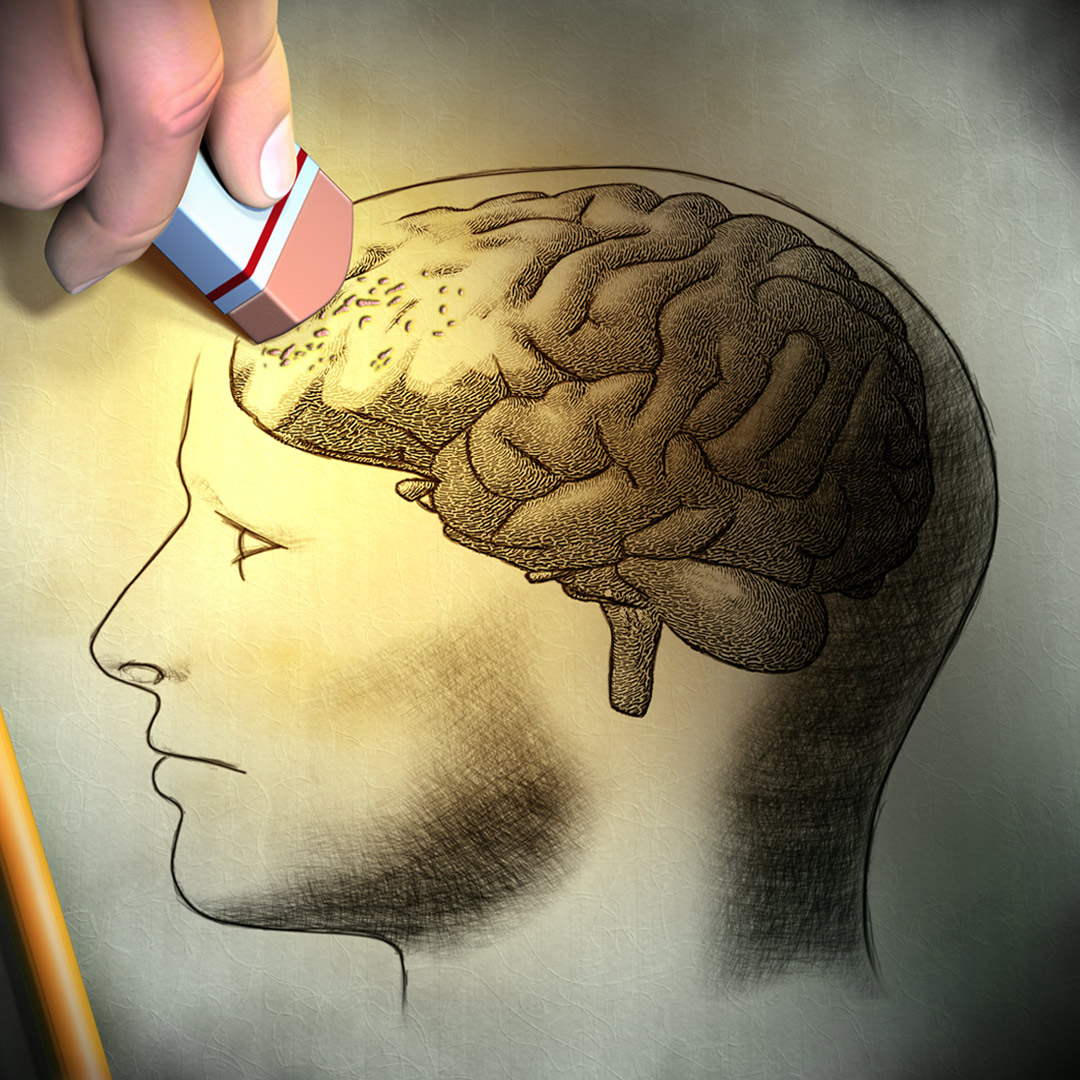
Do Memory Problems Always Mean Alzheimer's Disease?
Many people worry about becoming forgetful. They think forgetfulness is the first sign of Alzheimer's disease. But not all people with memory problems have Alzheimer's. Other causes for memory problems can include aging, medical conditions, emotional problems, mild cognitive impairment, or another type of dementia.
Differences Between Normal Aging & Alzheimer's Disease
Normal Aging
Alzheimer's Disease
Age-Related Memory Changes
Forgetfulness can be a normal part of aging. As people get older, changes occur in all parts of the body, including the brain. As a result, some people may notice that it takes longer to learn new things, they don't remember information as well as they did, or they lose things like their glasses. These usually are signs of mild forgetfulness, not serious memory problems, like Alzheimer's disease.
Mary's Story
Mary couldn't find her car keys. She looked on the hook just inside the front door. They weren't there. She searched in her purse. No luck. Finally, she found them on her desk. Yesterday, she forgot her neighbor's name. Her memory was playing tricks on her. She was starting to worry about it.
She decided to see her doctor. After a complete check-up, her doctor said that Mary was fine. Her forgetfulness was just a normal part of getting older. The doctor suggested that Mary take a class, play cards with friends, or help out at the local school to help her memory.
Memory Loss Related to Medical Conditions
Certain medical conditions can cause serious memory problems. These problems should go away once a person gets treatment. Medical conditions that may cause memory problems include:
- Tumors, blood clots, or infections in the brain
- Some thyroid, kidney, or liver disorders
- Drinking too much alcohol
- Head injury, such as a concussion from a fall or accident
- Medication side effects
- Not eating enough healthy foods, or too few vitamins and minerals in a person's body (like vitamin B12)
A doctor should treat serious medical conditions like these as soon as possible.
Al's Story
Al didn't know what was happening. He was having a hard time remembering things. He wasn't eating or sleeping well and didn't want to see friends. He was confused and irritable.
His wife was worried. She took him to the doctor. It turned out that Al was having a bad reaction to one of his medicines. Once his doctor changed his medicine, Al felt more like himself
Memory Loss Related to Emotional Problems
Emotional problems, such as stress, anxiety, or depression, can make a person more forgetful and can be mistaken for dementia. For instance, someone who has recently retired or who is coping with the death of a spouse, relative, or friend may feel sad, lonely, worried, or bored. Trying to deal with these life changes leaves some people feeling confused or forgetful.
The confusion and forgetfulness caused by emotions usually are temporary and go away when the feelings fade. Emotional problems can be eased by supportive friends and family, but if these feelings last for more than 2 weeks, it is important to get help from a doctor or counselor. Treatment may include counseling, medication, or both. Being active and learning new skills can also help a person feel better and improve his or her memory.
Gloria's Story
Gloria was feeling sad all the time. She just wanted to sleep all day and night. She was becoming really forgetful, too. Gloria's nephew Bob was afraid something was very wrong. He took her to see a doctor. The doctor said she had depression and needed to take medicine and see a counselor.
After 3 months, Bob could see the change in his aunt. She was eating and sleeping better. Gloria was spending more time with friends and doing volunteer work.
